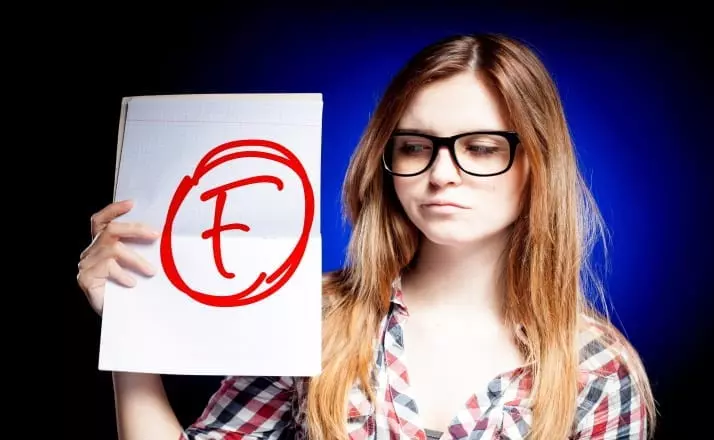Every parent is naturally proud of his or her child’s accomplishments. After all, if sharing your kid’s achievements wasn’t so important, the companies that manufacture the bumper stickers proclaiming, “My son/daughter is on the honor roll at such-and-such school!” wouldn’t exist.
And if my neighborhood is any indication, that bumper sticker company must be raking in MILLIONS. Because everyone’s child around here is on the honor roll, apparently.
Social media has made it even more convenient to show your pride in your offspring by sharing cute pics and updates on all the great things they’re doing.
But like anything else, people take things too far.
Remember when some parents were flinging slices of American cheese at their babies & posting it online? Or the ones that were filming themselves getting their toddlers to eat by pretending to beat the crap out of their kid’s stuffed animal?
THESE people –you know who you are– are exactly why we can’t have nice things, like the Internet. And they’re back, people.
The latest “WTF?!” trend is parents opening their child’s report card on camera, and posting their real-time reaction on social media.

Several parents on YouTube are filming (or live-streaming) themselves and their child opening the child’s report card together, and sharing the results with… THE ENTIRE WORLD, basically.
In the videos, the parent reads aloud every grade and teacher comment on the report card, favorable or otherwise. Every detail is shared with the parent’s audience, which could consist of thousands of followers.
Millions, even.
The child is in the video as well, and is essentially being publicly evaluated based on his or her grades- a snapshot of a single moment in his or her entire life.
While I won’t share any particular video clips to avoid targeting any specific family, all you have to do is search “report card” on YouTube and you’ll find nearly 20 videos of this sort.
This type of oversharing can create considerable anxiety & embarrassment for a child, and can lead to future resentment toward the parent(s).
When it comes to sharing children on social media, lines are blurred when parents reveal extremely personal details without considering if their child really consents to having those aspects of his or her life shared publicly.
Consider it from a pre-Internet perspective. While I had many stellar report cards, I also had one that were less than satisfactory (thanks to my nemesis, fifth grade math).
As a perfectionist, it pained me. I cannot even fathom the embarrassment I would have felt if my mother would have read aloud at a PTA meeting that while my reading scores were top-notch that quarter, I was nearly failing math.
Oh, and I was “inconsistent” with turning in my homework, too.
No child wants to be embarrassed or judged so publicly. What would the other parents think of me? What would my peers think of me??
No parent in their right mind would do that- back then.
But when the lines between “real life” and social media blur, you have situations where parents are sharing details that a child would never want shared with the outside world.
When several of the parents that created report card videos were contacted by CNN to discuss their child’s level of consent in the making of the video, it’s noteworthy that not a single one responded to the request.
Alexandra Hamlet is a clinical psychologist at the Child Mind Institute that specializes in mood disorders. As she explained to CNN:
There is a difference between being proud of your kid and displaying that on your refrigerator and sharing it on social media without consenting or discussing it with them in advance.
When parents post very personal aspects of a child’s life (a report card, for example) of a for public view it creates the potential for mistrust to develop.
Hamlet points out that if a child realizes that something he or she shared in private was publicly revealed by the parent:
A kid might think, ‘If a parent is posting things without my consent, can I trust them with secrets or things I’m proud of?’
Almost all of us are revealing aspects of our lives online to some extent- some far more than others.
Parent bloggers and family vloggers make a living from sharing their lives with the world, and that obviously includes their children.
It boils down to dignity. If you choose to share details of your child’s life publicly, it’s best to ensure that it’s not the kind of material that could cause them embarrassment or humiliation.
The teenage years are awkward enough without the chance of your peers catching wind of videos on social media that expose a kid’s perceived weaknesses or life details to mock.
While racking up tons of followers on your social media accounts is a tempting goal for many, there are certain parts of your child’s life that should only be shared off-camera, and that includes report cards.











